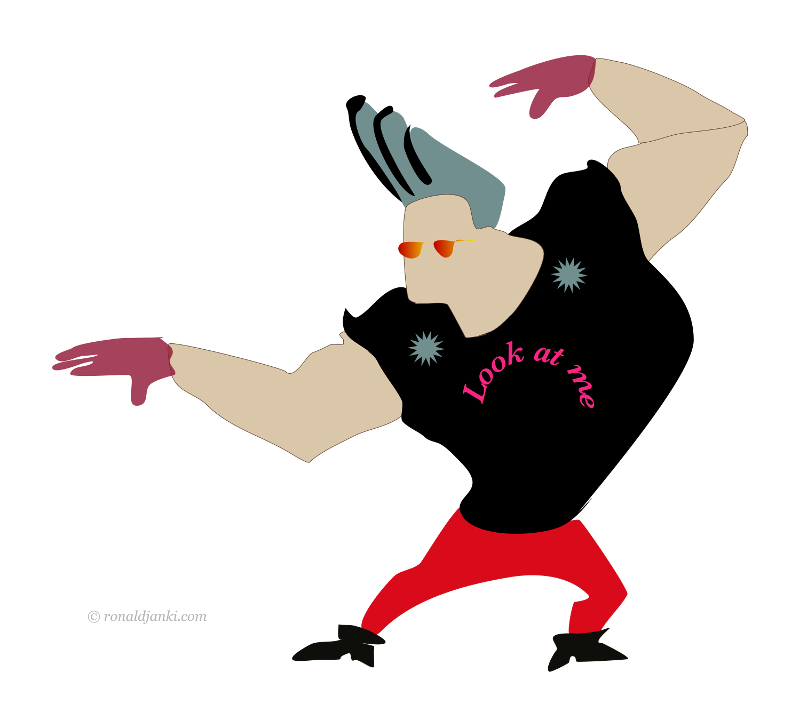There has been a lot of press about Millennial entrepreneurs the last 2 years. Young folks – mostly boys – dropping out of high school to start their own businesses at ages as young as 15. One of these, Noah Miller, who started a sports web site at 15 and later a creative agency asked to join my network on Linked-in. Then he asked me to look into the topic of young entrepreneurs and see what lessons we could learn.
1 – If you are really good at something at a young age, continue to work at it
Ben Pasternak liked gaming, and he liked apps. So at 15 he wrote a game-like app and put it on iTunes. 1.3million downloads later he was a young superstar. Since then he’s created two more apps (Flogg and Monkey.) His young hobby led to building strong programming skills, which when linked to identifying what appeals to Millenials turned into apps people really use.
George Matus started flying drones at age 12. He loved it so much he started modifying drones, and building his own. He published videos of his exploits on YouTube, and convinced drone makers to let him be a tester. After 6 years of working on Drones he now has his own Peter Thiel funded company making drones. So far no products on the market, but he is working at it.
Whether iOS apps or drones will be a long-term career is hard to say. But by building strong skills in new technologies with large markets and high growth rates these fellows created business opportunities. You don’t have to be a Millenial to do that.
2 – Take advantage of trends while they are hot
Collecting sneakers is a remarkably big market. Most older folks would call it a fad, thinking nobody will collect sneakers for long. But, it doesn’t really matter if a trend is going to be long-lived, or not, if you are willing to jump in and help push the trend along.
Fifteen year old Ben Kapelushnik liked sneakers. He wanted money to buy more. So he started buying multiple pairs of collectible sneakers and selling the “extra” pairs at a profit. To grow he networked with sneaker sellers to figure out how he could get in line early and buy many pair. Then he networked hard as he could to find associations with big time sneaker collectors, like rappers and other creative artists. Now he has a business buying and selling sneakers. How long will the fad last? Who knows – but Ben is making money by taking advantage of a hot trend.
Connor O’Neil saw the same phenomenon. He thought “why don’t I go source things people want?” So he created a web site where buyers can request he source sneakers, T-shirts and other items. He then searches the web, sourcing the items manually and with bots that will make instantaneous purchases of hard to find items. He charges customers a fee to find what they want. By meeting customer needs for trendy items, he finds an opportunity for profit.
At 16 Casey Adams started networking on Snapchat, Facebook, Twitter and other social media. After he built up a following of several thousand followers he began offering them t-shirts and wristbands. Pretty soon he was generating $5k/month in revenue. While many older folks still think social media, and Snapchat in particular, is a time-waster, Casey is making money on the obvious trend toward all things social. He’s leveraging his social network to sell things – and teaching other people how to do the same.
Are Bitcoins long-term currency? Will crypto-currency replace things like Dollars and Euros? Most older generation folks don’t think so, and view this as another fad. But Erik Finman saw the trend at age 12, and started buying Bitcoins. A few trades later and he turned $1,000 into $100,000. A few more trades and Finman had a stash worth over $1,000,000. Are Bitcoins the next Tulip bulbs? You can research the economists for opinions on that. But as long as the trend is growing, Erik Finman is making money.


Peter Szabo was only 12 when he used a Google search to identify ways to make money on the internet. He discovered making Facebook ads for affiliates could pay off – in pennies at first, but as volume rose these became dollars. Since so few older people knew how to manage a Facebook ad budget, by age 18 he created an on-line agency focused on maximizing value (and return) for Facebook advertising. You don’t have to be a Millennial to recognize the growth of new platforms and help people use them to make money.
3 – There has never been a better time to be a self-promoter
Today anyone can claim to be “great” at anything using the web. There are so few genuine ways to measure quality and results when it comes to anything on the web that if you say it enough, and find enough testimonials, you can be very convincing.
Noah Miller started a sports web site at age 15 using a group of writers he amassed via Twitter connections. Sports Crave had some success with USAToday and Google before Noah closed it at age 17. Based on his claims of great success he’s now promoting his new creative agency, Colour Medium, which has nothing more than a flash page. But the web allows Noah to position himself at the forefront of creative.
Benji Taylor at age 18 has opened a new on-line creative agency named Next Exit focused on art for the music industry. By forging relationships with known young musicians he has positioned his agency at the top of the creative spectrum for his target customers. Given how fast musicians come and go in the limelight, who knows how long his testimonials will stand up. But as long as people know the name of those who know his name he is leveraging those associations to crown himself the king of that industry.
Eighteen year old Josh King Madrid, known as Jet, has built a business on seemingly nothing more than a lifestyle. It is wholly unclear if Jet has ever actually created a profitable business selling anything physical or digital. But what he has done is convince lots of Millenials that he knows the lifestyle they want to lead, and he can tell them how to lead it. So now, largely without any clear source of how he obtained any knowledge about succeeding at business, he is proselytizing how young people can be independent, self-actualized and living the “Jet Set” lifestyle at his events. Jet is one of the best descriptions of how self-promotion can succeed in today’s social-media world, leading people to believe they should listen to you primarily because of the image you portray.
Overall Lessons from these 10 under 20 entrepreneurs
There is precious little to support the grandiose success claims of most Millennial entrepreneurs. They claim huge revenues and wealth, but in most cases it is impossible to prove their claims, and most support comes down to number of followers, or testimonials of some celebrity. But, that does not mean we can’t learn from what they did to achieve their current fame:
- Use social media exhaustively. Over-communicate. Use Facebook, Instagram, YouTube, Snapchat, Twitter, etc. over and over and over to communicate your value and your message. These platforms are dirt cheap, so hard work there can make up for few dollars.
- Take big risks, especially if you have little to lose. Most folks are hamstrung by the commitments of family, mortgage, car payments, etc. If you remove these bindings you can take big risks, like rolling over thousands of dollars worth of crypto-currency. And if something fails, never call it a failure. Just a learning experience you’ve moved beyond.
- Don’t try to improve something that already exists. Do something new. Develop a new app, a new drone, a site focused on selling collectible sneakers. It is cheaper, and more likely to succeed, if you are an early entrant in something new and growing.
- Hype is good. Pre-announce everything. And announce that your next thing (whether a drone, a web site, an exchange site or something else) is going to be HUGE. It will be the VERY BEST EVER. Do not be deterred by feeling the need to prove any of your claims, just make big claims with tremendous bravado.
- Take credit for anything that goes right. None of these people ever say they were lucky. Whatever went right was always do to their inherent insight, skill or genius.
- Stay out of specifics. Talk in platitudes. Especially statements that appeal to other Millenials.
- “Live your own life if you want to succeed.”
- “Believe in yourself 1,000%. That’s what truly matters.”
- “Don’t trust employers or education. Trust only yourself.”
- “Self-education is better than schools. You can learn more on YouTube than any classroom. Teachers are nay-sayers.”
- “Do what you are passionate about.”
- “Millennials are special. Millennials are smarter and better than older people.”
- Select good parents. I was struck by the fact that almost all these young people had parents and/or grandparents that were physicians, PhDs, successful real estate developers, successful business people. There is no doubt they benefited at their young age from families that had resources and skills that are not available to the vast majority of folks.
Is ongoing success pre-ordained?
I remember the student counsel President of my school, Mr. Popularity, who dropped out of college to open a string of pizza shops. He received ample praise and publicity for his young entrepreneurial success. But after a few setbacks the pizza shops failed, he took work as a salesman for a liquor distributor, became an alcoholic and lost his family. I was glad he found success early, and saddened that he wasn’t the wunderkind many people foisted upon him.
Life is not a one round fight. It will be interesting to see who among these, if any, go on to do great things in business, politics or another arena. While they are full of chutzpah today, life has a way of throwing many derailing curves into everyone’s path. But…
…that does not mean their early success can’t teach us some important lessons that can be applied, regardless of our age.


